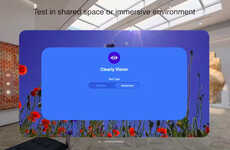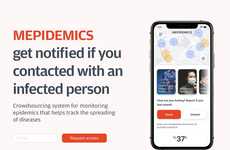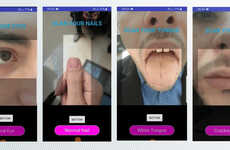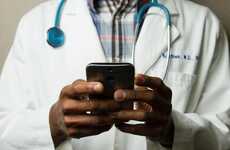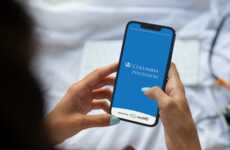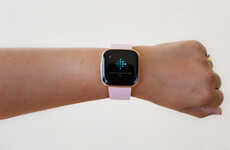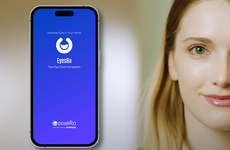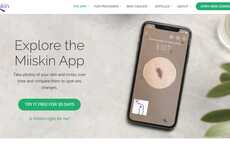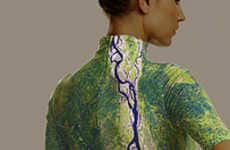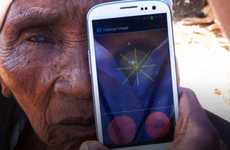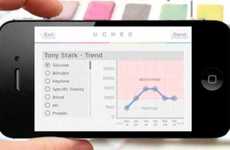
The Lifelens App Detects Malaria Before It Turns Deadly
Michael Hines — July 28, 2011 — Tech
References: thelifelensproject & springwise
The LifeLens app is a new app from the LifeLens project designed to test for malaria. The app was created as a more accurate way to test for malaria as current testing techniques have a 60 percent false positive rate.
That's a lot of false positives, especially with a disease so deadly. The LifeLens app works by taking a picture of a blood stained with a malaria-detecting chemical. The picture of the slide is then analyzed by the app, which differentiates between the amount of red blood cells and the amount of malaria cells, if any. The app then assigns the slide a case number and sends its findings off to a database where it is put on a map that can be viewed from the app.
I am a huge fan of my Angry Birds and Pandora apps, but it is nice to see people creating an app that provides something more meaningful than mindless entertainment. If you are interested in watching the app in action, then check out the video here.
That's a lot of false positives, especially with a disease so deadly. The LifeLens app works by taking a picture of a blood stained with a malaria-detecting chemical. The picture of the slide is then analyzed by the app, which differentiates between the amount of red blood cells and the amount of malaria cells, if any. The app then assigns the slide a case number and sends its findings off to a database where it is put on a map that can be viewed from the app.
I am a huge fan of my Angry Birds and Pandora apps, but it is nice to see people creating an app that provides something more meaningful than mindless entertainment. If you are interested in watching the app in action, then check out the video here.
Trend Themes
1. Advanced Disease Detection - Developing apps that utilize advanced technology to accurately detect diseases like malaria can revolutionize healthcare diagnostics.
2. Mobile Medical Testing - The incorporation of mobile technology in medical testing can enable more convenient and accessible diagnostic methods.
3. Data-driven Disease Mapping - Utilizing app-generated data to create real-time disease maps can enhance monitoring and response strategies for disease outbreaks.
Industry Implications
1. Healthcare - The healthcare industry can adopt disease-detecting apps to improve diagnostic accuracy and patient outcomes.
2. Mobile App Development - The development of disease-detecting apps presents disruptive innovation opportunities in the mobile app industry.
3. Data Analytics - The utilization of app-generated data for disease mapping creates new opportunities for data analytics companies to provide valuable insights.
2.8
Score
Popularity
Activity
Freshness

